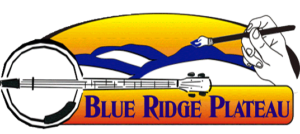Building a new sustainable livestock industry in Central Appalachia in cooperation with Grayson LandCare, Virginia Farm Bureau, USDA Resource Conservation Service, the College of Agriculture & Life Sciences and Virginia Cooperative Extension at Virginia Tech, and Lincoln Memorial University College of Veterinary Medicine; Danny Boyer has demonstrated improvements in the productivity and nutritional quality of forage and the heath of animals. Forage produced with less labor and other costs to improve profits while rotating animals from paddock to paddock (smaller fenced pastures), animals continue to graze through the Winter months. The resulting grass with abundant protein and energy maintains animal robustness throughout the year.
As part of a demonstration of Whole Farm Planning, farmers learn to balance farm profitability, community stability, and environmental vitality with new decision-making and evaluation tools. Farm families integrate the dynamic relationships of the economic, social and ecological consequences of management alternatives in relation to their contribution to the family’s goals. Existing farm resources are evaluated – the natural resource endowment, livestock, buildings, equipment, human resources, etc. – to determine options given the availability of markets, technical expertise, investment capital, collaborative community ventures, and other resources and services. Over time watersheds are stabilized, soil health improved, and the animals produced enter into higher value markets.
In addition, on-farm watering systems are established using available freshwater springs and wells with circular watering troughs keeping animals out of streams and protect vegetation in riparian area while maintaining high water quality for everyone downstream.
Funded initially by the Claire and Jack Matthews Foundation, the demonstration now it its 8th year. This short video by Danny Boyer on his Four Winds Farm gives an up-to-date glimpse of accomplishments. https://youtu.be/KgIbmpzn9LE
Value Added Steps
Before any commitments were made, the viability of markets had to be determined. With cooperation of Sharon Quisenberry, then Virginia Tech Dean of Agriculture & Life Sciences, and the support of a USDA research grant, agricultural economists Denise Mainville and Ashleigh Waddle inventoried beef processing facilities and market opportunities for value added beef finding that markets was growing and a need for additional processing facilities.
Assured that markets were expanding, steps were taken to increase returns to livestock farmers, create employment opportunities, and hold greater financial benefits locally. More than $160,000 has been invested plus countless volunteer hours to design a modern abattoir (animal harvest facility) to be located Carroll County within a mile of Interstate-77. A for-profit firm, Mountain Fresh Meats, has been established to operate the facility and preferred stock is now available for investors. Farmers have extended their calving seasons to provide a year-round supply of animals and have certified their operations (hormone and antibiotic free, organic, pasture raised, humanely treated) gaining access to higher value markets.
In cooperation with Grayson LandCare and Virginia FAIRS (non-profit arm of Virginia Farm Bureau), KnowledgeWorks, a business development program at Tech, surveyed farmers in 7 counties in North Carolina and 11 in Virginia finding sufficient farmer interest to support the facility. At the moment, enough animals have been pledged, 75 plus per week, to exceed the breakeven financial requirement. The Virginia Tobacco Commission has pledged $500,000 to initiate construction and other applications for grant funding are prepared.


